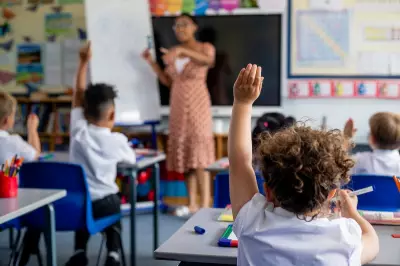
A monumental shift in child protection law has finally been achieved, as England joins the rest of the UK in making the physical punishment of children a thing of the past. This landmark legislation grants children the same legal protection from assault that adults have long enjoyed, closing a centuries-old legal loophole.
The change, which came into force after a long-fought campaign by children's charities, marks the end of the outdated 'reasonable chastisement' defence. This defence had previously allowed parents and guardians to justify smacking or other physical punishment as a form of discipline.
A Long-Awaited Change
For decades, campaigners from organisations like the NSPCC have argued that the law was inconsistent and failed to protect society's most vulnerable. The charity has hailed the ban as a "historic step forward" for children's rights, bringing England in line with Wales, Scotland, and a host of other progressive nations.
Sir Peter Wanless, Chief Executive of the NSPCC, emphasised the importance of the change: "This law is a vital commitment to children across the country. It sends a clear message that violence is never acceptable, and that children deserve the same fundamental protection as adults."
What Does the Ban Mean for Parents?
The updated law means that any form of physical punishment, including smacking, slapping, and shaking, is now illegal. The previous defence of "reasonable punishment" can no longer be used in any court proceedings in England.
This move is not about criminalising parents but about promoting positive, non-violent discipline techniques. The focus is on education and support, helping caregivers to manage children's behaviour without resorting to physical force.
A Unanimous Step for the UK
With this legislation, the entire United Kingdom now stands united against the physical punishment of children. Wales led the way in 2022, followed by Scotland in 2020, and now England has completed the picture. This alignment creates a consistent child protection standard across all four nations, ensuring every child in the UK has an equal right to safety and security in their own home.
This historic reform is celebrated as a triumph for child welfare and a clear statement about the kind of society the UK aspires to be—one where every child can grow up free from violence.





